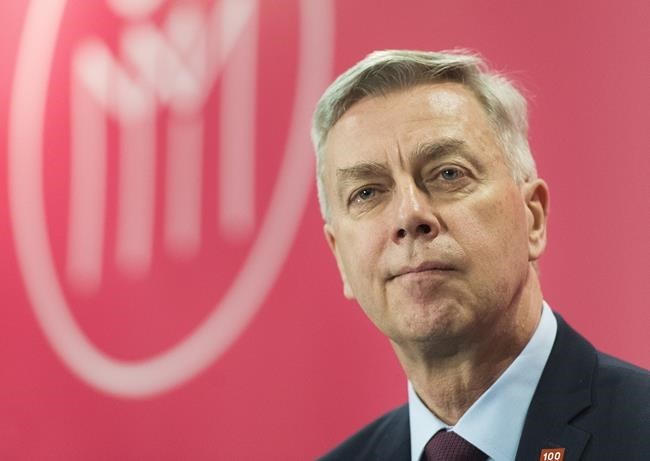CN Rail may only have to consider another painful round of layoffs if COVID-19's second wave causes shipping volumes to drop dramatically again, its chief executive said Wednesday.
"If the economy slows down we might have to have layoffs," Jean-Jacques Ruest said a day after marking the 25th anniversary of the government's privatization of Canadian National.
Canada's largest railway is recovering from a big drop in volume in the second quarter that forced it to cut staffing and withdraw its full-year guidance. It has since recalled some of the thousands of employees who were laid off.
Ruest said CN s in a much better position to keep its employees safe than it was at the onset of the pandemic, when it had to make some of the disinfectant and wipes itself.
"Now we have everything we need. I think right now we have a process, and we can last this whole thing for as long as it needs to be," Ruest said.
Ruest said there are probably more employees on staff than is required because the company needs to have people to cover for those who are infected or are quarantining themselves.
The type of business CN moves is also vastly different than before the coronavirus struck in March and prompted lockdowns, he said
He said crude-by-rail fell dramatically and may not recover, while grain, consumer freight, intermodal and its port business are booming as people spend more time at home.
"People are not travelling, therefore, the energy sector is not going to come back. People are still consuming though, so the container business will remain very strong," Ruest said.
CN Rail is a vastly different company than it was when it changed from a Crown corporation 25 years ago to a private-sector company, said Ruest, who joined the company about six months after the railway listed its shares on publicly traded stock markets.
A $1,000 investment of shares in 1995 would be worth $63,000 today. Its market capitalization has surged to $100 billion from just $2.2 billion and it has attracted pension and hedge funds, retail investors and Bill Gates, whose investment firm Cascade Investment LLC is the largest investor with a stake of more than 17 per cent.
The railway has had several influential leaders, from Paul Tellier to Hunter Harrison, and has grown through various acquisitions, including Illinois Central in 1998 for US$2.4 billion in cash and shares.
None of those accomplishments could have happened as a Crown corporation because government moves too slowly, Ruest said.
"They really need to be driven by business people and entrepreneurs, people who are willing to take calculated risks but can also execute behind that risk," he said.
Ruest also said he's not worried about U.S. president-elect Joe Biden's campaign promise to withdraw the permit for the Keystone XL pipeline and to require more U.S.-made purchases.
"Infrastructure projects are great for the rail industry. So whether there is a Buy America or not, if there is major infrastructure projects that will create demand for a lot of the stuff that we move," Ruest said.
This report by The Canadian Press was first published Nov. 18, 2020.
Companies in this story: (TSX:CNR)
Ross Marowits, The Canadian Press



